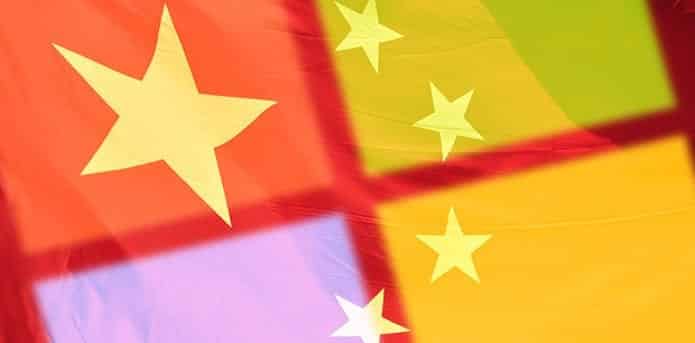Microsoft and CETG form joint venture in China to put Windows 10 on Chinese government PCs
As a part of a new joint venture between Microsoft and the state-owned China Electronics Technology Group (CETG), the Redmond-based software giant announced that it will offer a special customized version of Windows 10, which will be installed on the computers of the Chinese Government’s agencies and other companies that are under its jurisdiction.
The new company is provisionally named C&M Information Technologies, which will work to license, deploy, manage and optimize Windows 10 for Chinese government agencies and some businesses that are owned by the government.
CETG’s Chairman Xiong Qunli expressed his willingness for international cooperation.
“We hope the international society, be it academia, enterprises or nations, will embrace an open attitude for cooperation. For us, as a Chinese company, we have our own core technology and equipment, and we are willing and open to international cooperation. Along with our partners, we can build a safe and trustworthy cyber environment.”
The version will not only be “government-approved,” but also include Chinese-selected antivirus software. The joint venture company will provide “product activation, patch management, deployment services and product support” locally, and will also collect feedback about user requirements to develop future versions of the software, too.
Windows 10 already includes some extra benefits for users in China, as the personal assistant called Cortana supports voice commands and queries in Chinese language. They also have a forecast of expected levels of air pollution in their area.
The new venture is still subject to regulatory approval, and there’s no guarantee that it will actually lead to adoption among government customers in China. It has a registered capital of 40 million US dollars, wherein Microsoft will hold a 49% stake in the venture, while CETG will hold 51%.
The development is an improvement in the American company’s relationship with the Chinese authorities. In 2014, it was the target of anti-monopoly probe. A government procurement agency had also previously banned PCs with the Windows 8 software.
It’s an important deal for Microsoft, as “hundreds of millions” of PCs in China run on Windows. However, a major concern is that many of those copies are pirated. In the future, it is possible that Microsoft will work with Chinese regulatory bodies to crack down on software piracy. On the other hand, China is a fast-growing technology market, but in order to actually make money from Chinese consumers and businesses, Microsoft needs them to pay up.
Microsoft has previously signed deals with other Chinese tech giants such as Baidu, Tencent and Xiaomi.

